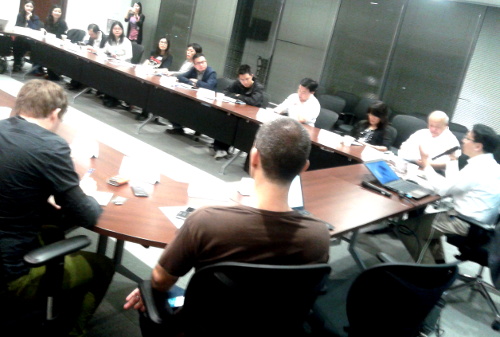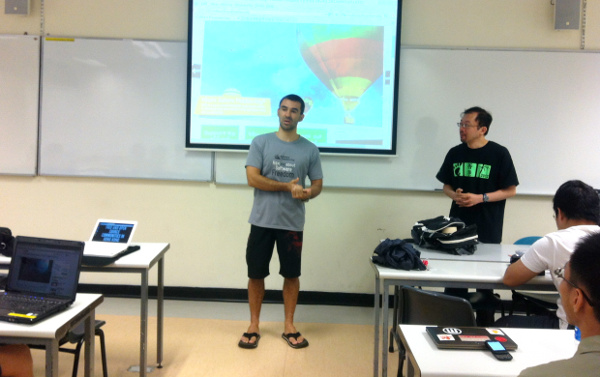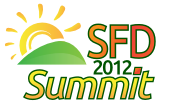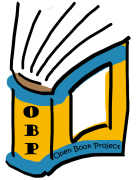 As Education Freedom Day is just around the corner I would like to highlight a few of the possibilities of participations during that day. I am indeed very happy to see projects contributors getting involved and I would like to highlight the Open Book Project lead by Jeffrey Elkner, Kevin Cole and a few others running their own event in Washington, DC. The Open Book Project has for us some special significance as I am also involved in Free Software advocacy and running educational groups which cover how to program at a young age. Definitely learning to code early enough is a good thing for every one as it teaches you the fundamentals of problem solving and logic. I have been using software such as RUR-PLE myself (part of the GNOME Education Suite) but the Open Book Project goes further and provides all kinds of books, tutorials and courses around the Information & Communication Technology with quite an extensive part on Python itself, split well enough not to bore the kids (or at least that is how I feel). Jeffrey Elkner is also involved in the Guido van Robot programming language which is very similar to the RUR-PLE I love. So why do I care about Python in education would you ask? Well that is probably because the language is simple and close enough to the English language and allows you to do wonders at the same time. So rather than learning something that is only useful within its educational context, why not make the slight extra effort to learn something that is also used by real developers? And it is all Free Software!
As Education Freedom Day is just around the corner I would like to highlight a few of the possibilities of participations during that day. I am indeed very happy to see projects contributors getting involved and I would like to highlight the Open Book Project lead by Jeffrey Elkner, Kevin Cole and a few others running their own event in Washington, DC. The Open Book Project has for us some special significance as I am also involved in Free Software advocacy and running educational groups which cover how to program at a young age. Definitely learning to code early enough is a good thing for every one as it teaches you the fundamentals of problem solving and logic. I have been using software such as RUR-PLE myself (part of the GNOME Education Suite) but the Open Book Project goes further and provides all kinds of books, tutorials and courses around the Information & Communication Technology with quite an extensive part on Python itself, split well enough not to bore the kids (or at least that is how I feel). Jeffrey Elkner is also involved in the Guido van Robot programming language which is very similar to the RUR-PLE I love. So why do I care about Python in education would you ask? Well that is probably because the language is simple and close enough to the English language and allows you to do wonders at the same time. So rather than learning something that is only useful within its educational context, why not make the slight extra effort to learn something that is also used by real developers? And it is all Free Software!
Of course those materials are usable by either teachers, students or self-learners and EFD will be a day where you can either join the team in Washington DC or get in touch with them and see how you could contribute without being on site.
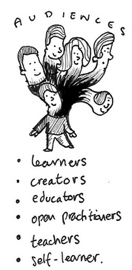 Yet another day and another project needing some love on Education Freedom Day: the Open Education Handbook! Started in September 2013 and initiated by the Open Education Working Group from the Open Knowledge Foundation, the Open Education Handbook initially intended to cover Open Data use in education but has quickly evolved into a document extending to the different aspects of open education, such as resources, data and culture and how those fit together. While it is currently the second version, the targeted final release is for October 2014.
Yet another day and another project needing some love on Education Freedom Day: the Open Education Handbook! Started in September 2013 and initiated by the Open Education Working Group from the Open Knowledge Foundation, the Open Education Handbook initially intended to cover Open Data use in education but has quickly evolved into a document extending to the different aspects of open education, such as resources, data and culture and how those fit together. While it is currently the second version, the targeted final release is for October 2014.
So on Education Freedom Day, the people from Campinas in Brazil, together with interested participants either locally or remotely, will work on a Portuguese translation of the Open Education Handbook. Note that the event is actually happening on Monday 20 January and should you not live in the area feel free to contact them through our Portuguese mailing list. Of course if you are more generally interested in contributing to the Open Education Handbook then looking at the Open Education Working Group mailing list is probably a good way to start.
 Education Freedom Day is happening in many other places and can be a very good way to get involved in Free Educational Resources building or advocacy. In the coming days I will highlight other projects as well. Stay tuned!
Education Freedom Day is happening in many other places and can be a very good way to get involved in Free Educational Resources building or advocacy. In the coming days I will highlight other projects as well. Stay tuned!
